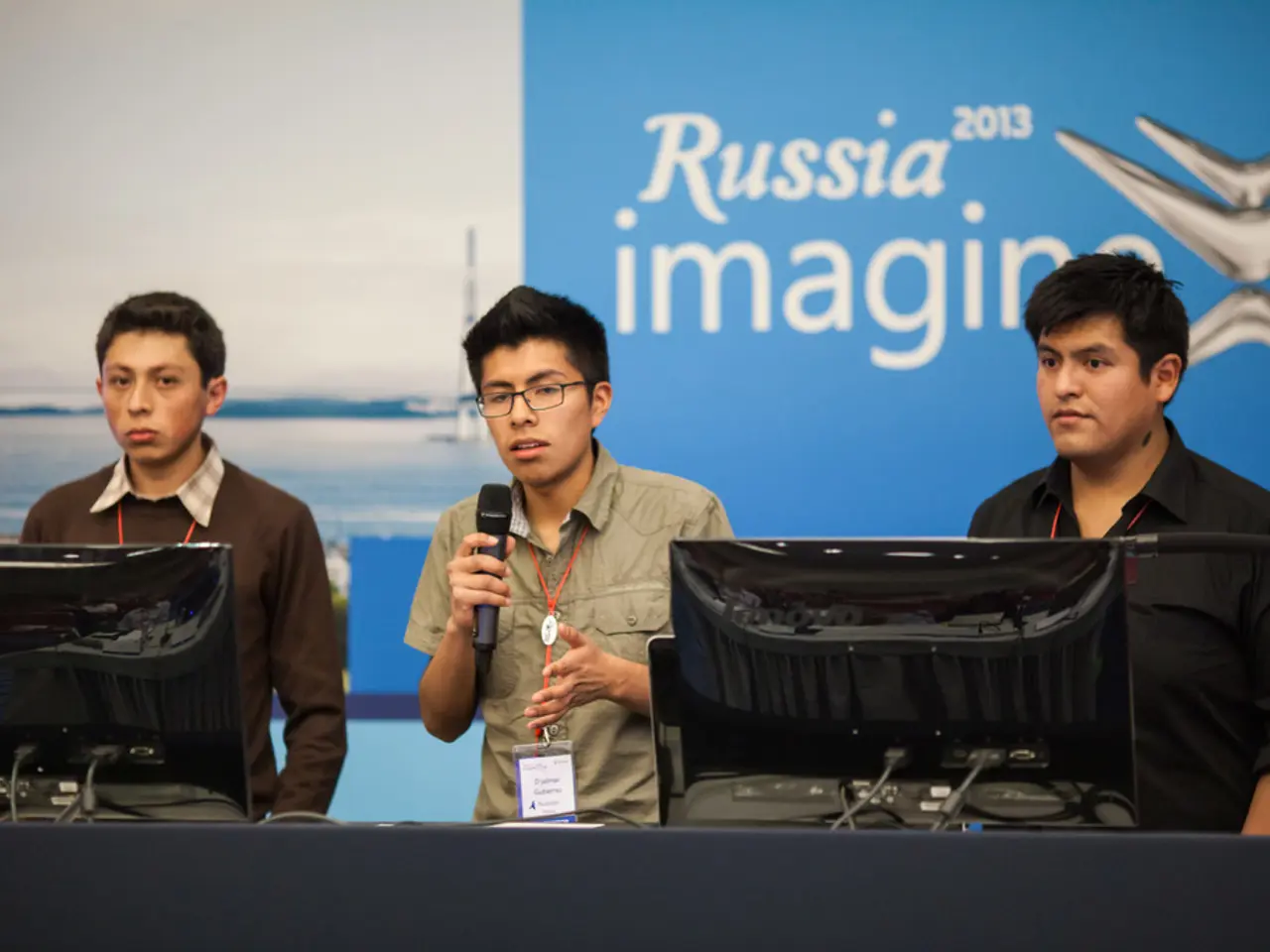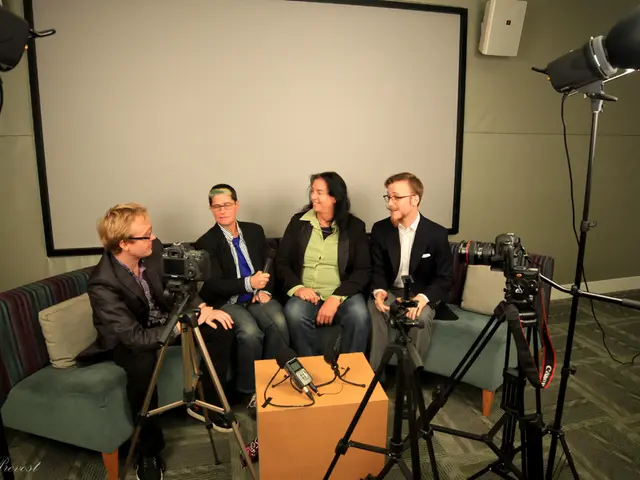AI Resources Aiding in Bridging the Gap of Youth Employment Crisis
In the heart of Africa, a digital revolution is underway. Amidst the challenges of infrastructure deficits, high internet costs, and policy gaps, AI career tools are emerging as a beacon of hope for the continent's youth, aiming to combat the pervasive issue of youth unemployment.
According to Eunice Muthengi from the Mastercard Foundation, the future of youth employment in Africa depends on moving from plans to tangible results, ensuring AI career tools are accessible and impactful across the continent. These tools can effectively address Africa's youth unemployment crisis by closing the tech talent gap and providing skill development tailored to local needs.
One approach is through targeted AI training programs. Initiatives in South Africa, Nigeria, Kenya, and Rwanda are equipping young people with AI and digital skills that align with evolving job markets, helping reduce youth unemployment rates as high as 62% in South Africa. These programs often focus on rural and underserved areas, reaching youth who might otherwise be excluded due to infrastructure or access challenges.
Leveraging mobile and AI platforms is another strategy. Given uneven digital infrastructure, mobile-based AI tools provide practical experience and jobs accessible from low-resource settings. AI-powered platforms can also support personalized, remote learning and dynamically update curricula to keep pace with job market demands, helping to overcome access barriers.
Addressing educational mismatches is crucial. African universities currently struggle to prepare students for AI-driven roles due to outdated curricula and a shortage of tech-focused instruction. AI career tools integrated with education reform—including micro-credentials and continuous learning frameworks—can help youth acquire relevant skills, improving employability in sectors like agriculture, finance, and healthcare where AI is increasingly used.
Fostering public-private partnerships is essential for scaling reskilling and job placement programs for youth, addressing talent shortages and ensuring that training leads directly to employment opportunities. Collaboration between governments, educational institutions, and private companies can transform how we understand and address youth employment in Africa.
Digital inclusivity with AI solutions is another key aspect. Innovative AI applications designed to bridge the digital divide can help youth in underserved regions access quality education and career tools, mitigating infrastructure deficits. Tailoring AI tools to local languages and contexts also improves uptake and effectiveness.
David Sokefun from Codar Tech Africa highlights the need for educational institutions to evolve beyond traditional teaching methods: "In the 21st century, illiteracy pertains to those who cannot learn, unlearn, and relearn." The African Centre for Women, Information Communication and Technology (ACWICT) in Kenya plans to train over 300,000 youth in digital skills and job readiness, with Microsoft Philanthropies providing a $600,000 grant.
AI-powered career tools create detailed digital profiles using psychometric assessments, behavioural analytics, and AI-driven recommendation engines. These tools offer tailored career guidance, skills assessments, and job matching, reducing candidate screening time by 80% and improving candidate quality by 60%.
Microsoft's AI Skills Initiative, along with Eyouth and EDT&Partners' $6 million investment, is aimed at equipping millions with digital skills. The company also plans to invest ZAR 5.4 billion in South Africa by 2027 to expand cloud and AI infrastructure.
However, sustained collaboration is vital. The International Finance Corporation (IFC) predicts 230 million "digital jobs" in Sub-Saharan Africa by 2030, all requiring some level of digital skills. Over 72 million young Africans are not in education, employment, or training (NEET), and high unemployment drives migration, worsens living conditions, and can lead to social unrest.
Nazia Pillay from SAP Southern Africa notes the need for private sector organisations to step up investment in workforce development: "We need to allocate a budget for upskilling our existing workforce." Pablo Langa, Founder and Managing Partner of EDT&Partners, emphasises the broader impact of such initiatives: "Education has a multiplier effect on our societies and economies."
Reshma Sheoraj from World Data Lab emphasises the need for governments to design evidence-based programs and invest in infrastructure: "I hope that the clock will promote the development of targeted policies that actually foster youth employment in the labor market." Africa accounts for just 1% of global computing and data storage capacity, limiting AI deployment. Energy infrastructure is equally critical for AI career tools to succeed.
In conclusion, AI career tools combat youth unemployment in Africa by equipping young people with market-relevant skills through accessible training programs, improving educational alignment, and enabling inclusive access despite infrastructure challenges. Combined with multi-sector collaboration, these efforts prepare youth for a future where AI-driven jobs grow across various industries on the continent.
- To effectively address the tech talent gap and provide the necessary skills for local job markets, AI career tools integrated with education reform – including micro-credentials and continuous learning frameworks – can help youth in Africa acquire relevant skills, improving employability across sectors such as agriculture, finance, technology, and education-and-self-development.
- Given the uneven digital infrastructure in Africa, AI-powered platforms intended for personalized, remote learning can help overcome access barriers and support general-news information dissemination, thus mitigating infrastructure deficits and ensuring that youth in underserved areas can access quality education and career tools.




